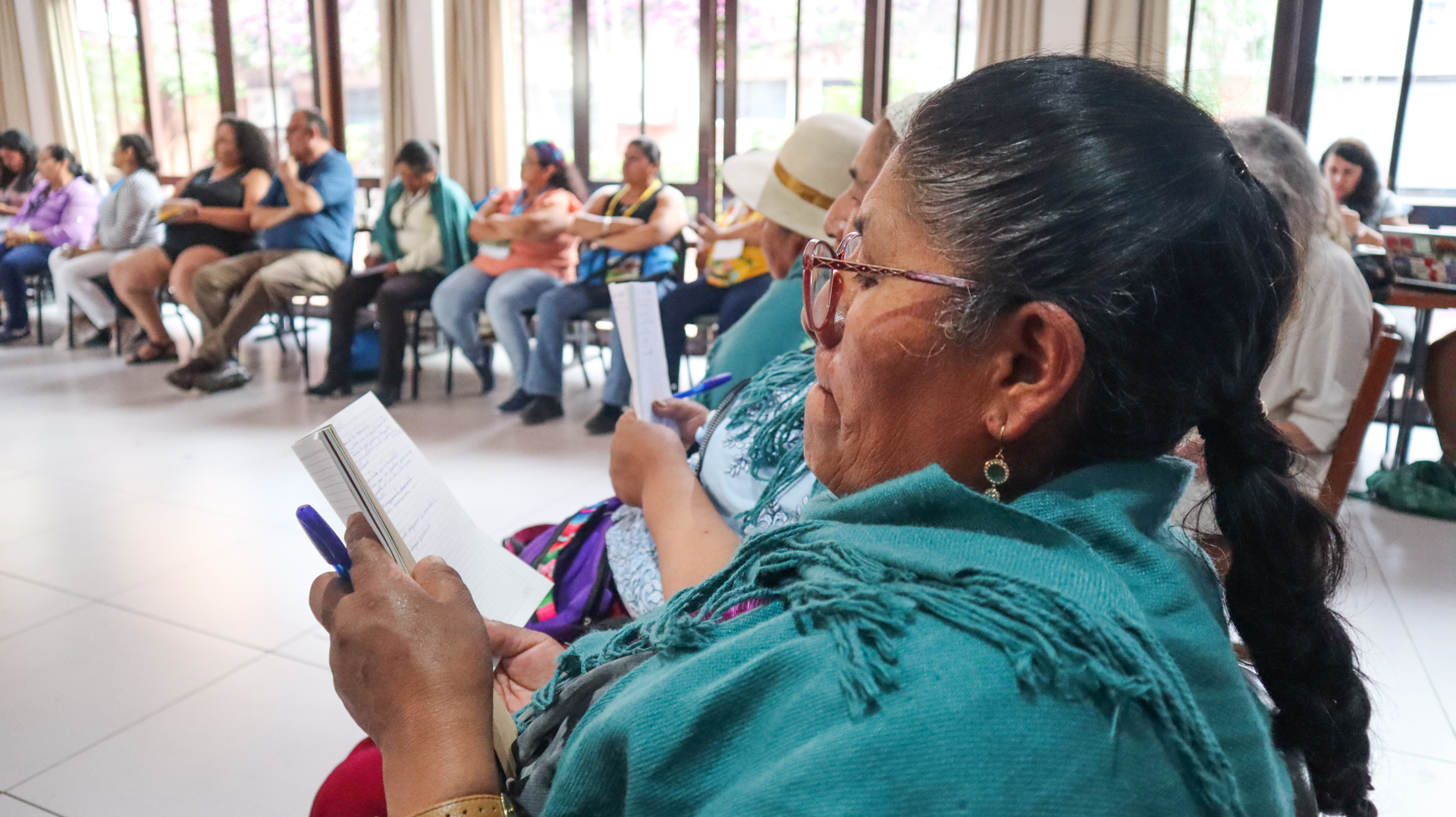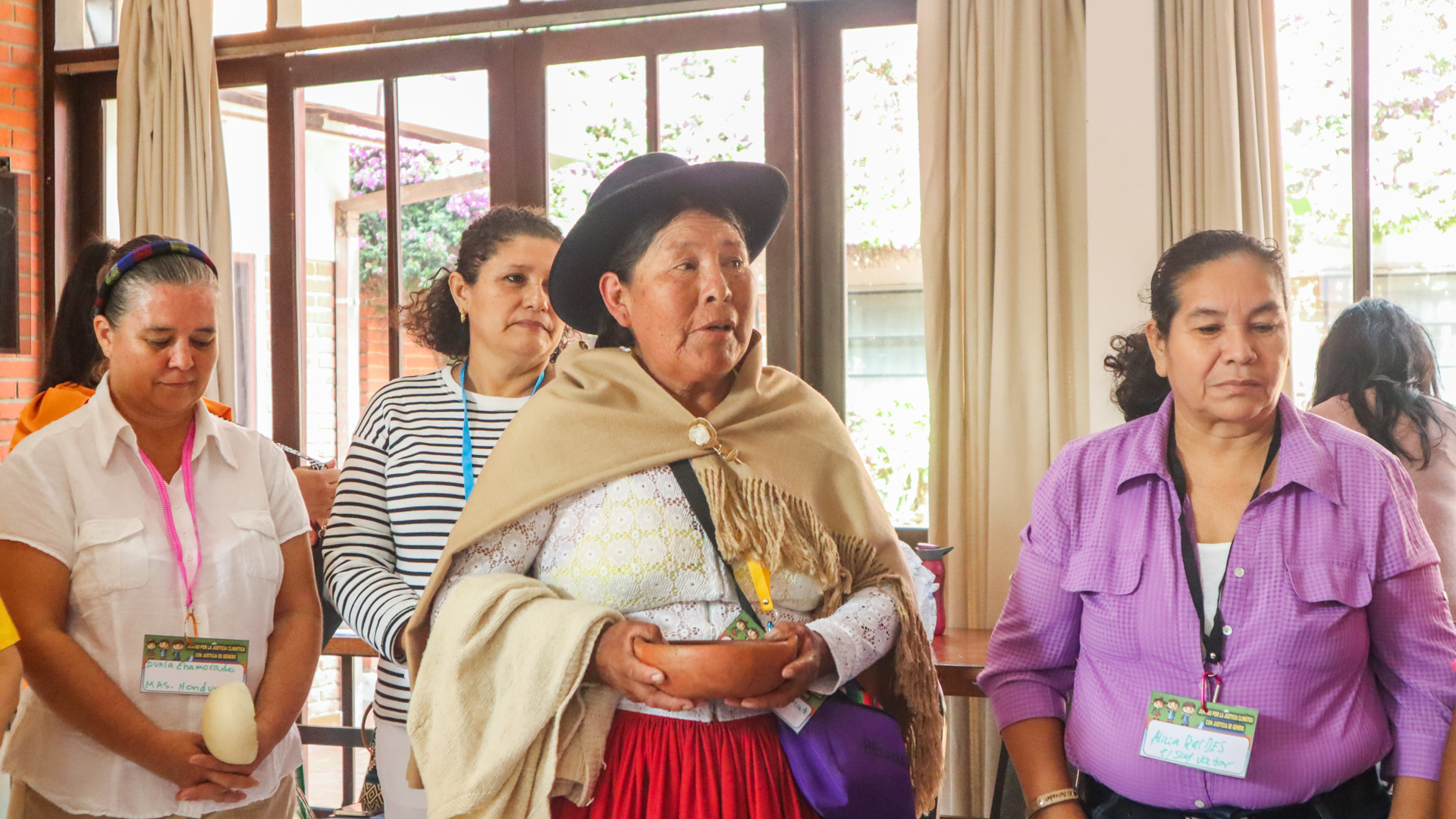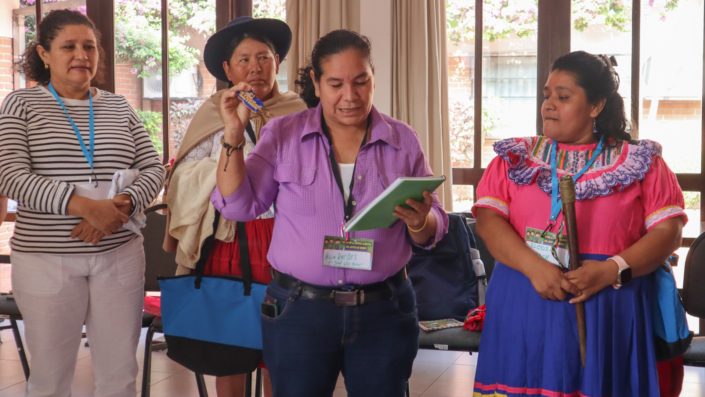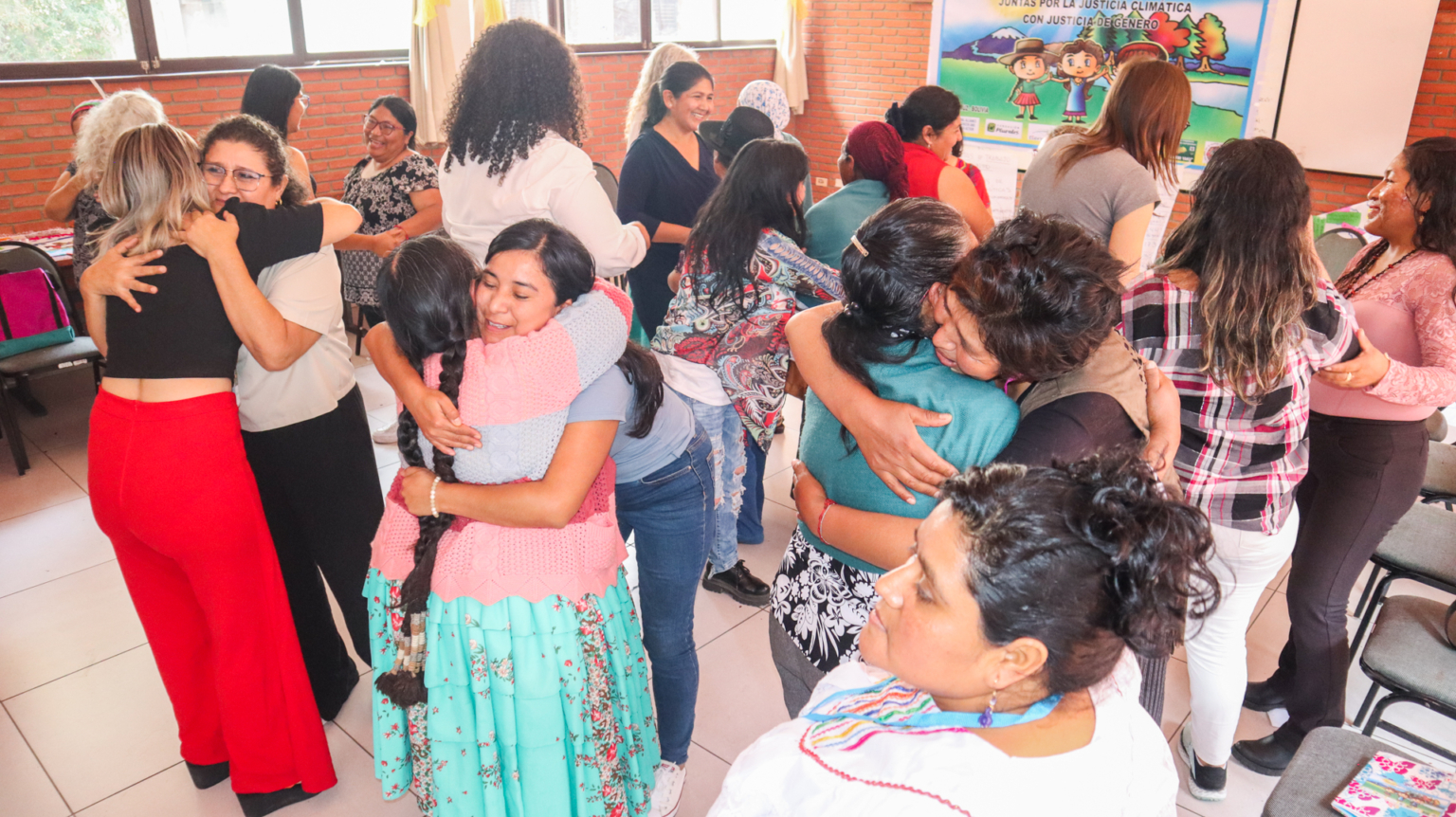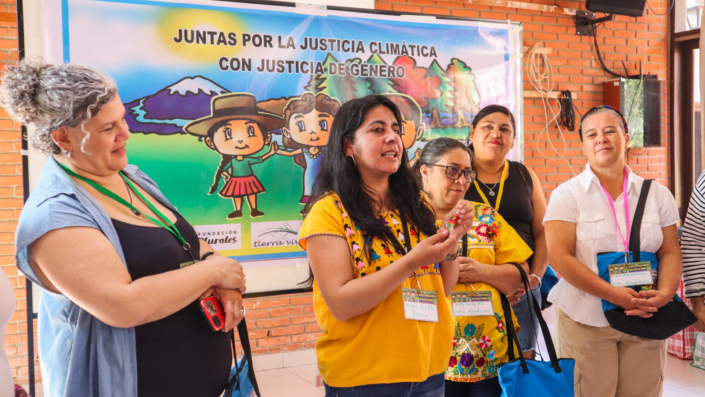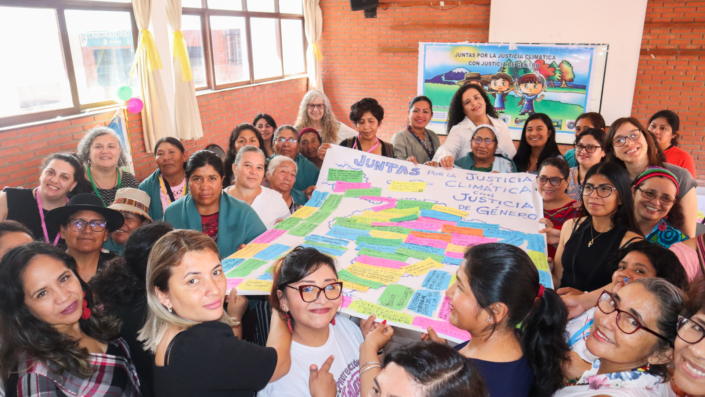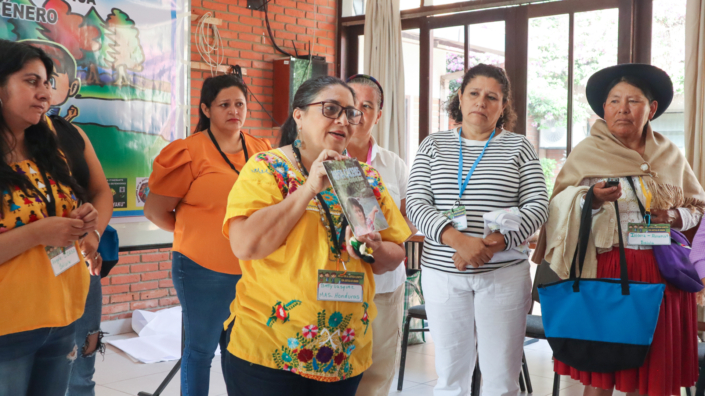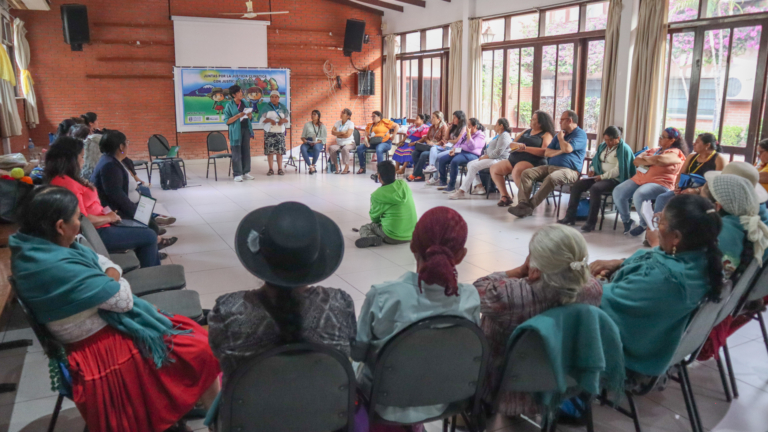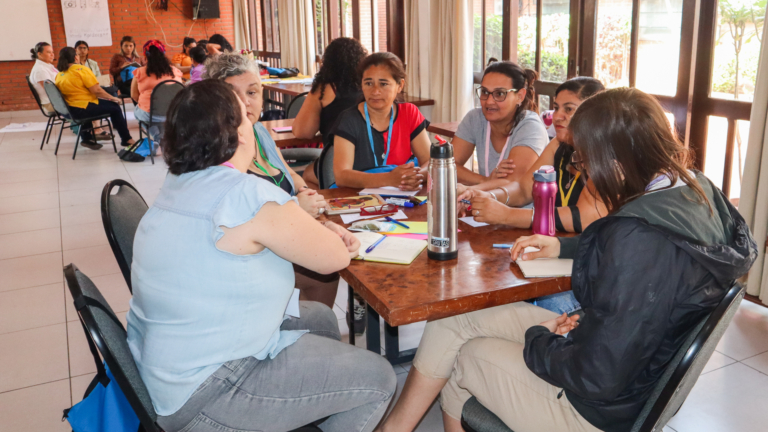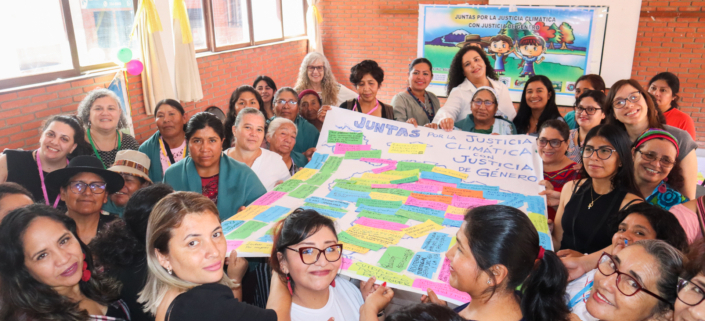
Schools Meeting (2024)
Between the 16th and 18th of August, the 2nd Latin American Meeting of Environmental Defenders for Climate Action took place in Santa Cruz de la Sierra, Bolivia. It was organized by Plurales, Colectivo CASA and Tierra Viva and more than 40 women representing 30 organizations from Argentina, Bolivia, Brazil, Ecuador, Paraguay, Guatemala, Honduras, Nicaragua, Mexico and El Salvador participated.
This space is aimed at strengthening and promoting alliances between organizations of environmental, peasant, indigenous, Afro-descendant and urban marginalized defenders of Latin America to take collective action in defense of territories, share advocacy strategies, make visible and strengthen initiatives that advance gender justice and climate justice.
Marisol Angulo, member of the Red Ecuatoriana de Forestería Análoga (REFA), participated in the meeting and says that “we seemed to have great energy when it came to sharing experiences, listening to the companions who had the same problem. We may have limits on the territories where we live in each country, but there are no limits on our spaces as women where we develop because the needs are equal, they are identical. Here we found the tools to continue in our spaces the feminist fight against climate change.”
Why meet?
Currently, the structural inequalities that impoverished rural, indigenous, Afro-descendant and urban women suffer are deepening due to the climate crisis, the global economic crisis, adjustment measures taken by the States of Latin America, the increase in the concentration of power of financial capital and the advance of extractivism over natural resources, elements that can no longer be sustained, perpetuating and deepening the current capitalist system.
The extractive industries, mining, petroleum, agribusiness, among others, seriously damage natural bienes and bring serious consequences to health, food security, productive activities and permanence in the territories of women, children and young people. The floods, sequels and frequency of other natural disasters make the climate crisis more common today than ever, seriously affecting and impacting the lives of rural and indigenous communities in different ways, but mainly of women and children, who have historically assumed the tasks of care, reproduction and maintenance of life.
In this context, there is an imbalance in power relations in many communities, and in particular women, defying their lands, territories and bienes communities, putting their lives at risk, in addition to sustaining it on a daily basis. Physical, psychological, political, patrimonial, sexual and environmental violence have multiplied within this patriarchy with multiple faces: religious, institutional, state, extractive and even humanitarian.
Even in this adverse scenario, rural, indigenous, Afro-descendant and urban marginalized women sustain the willingness to promote articulations to develop joint actions of incidence, visibility and communication of problems and their initiatives to face them. Women in the territories are building horizons of climate justice from the cosmovision of their communities and in tune with their ways of life. Within this framework, the 2nd Latin American Meeting of Environmental Women Defenders for Climatic Action continues to promote feminist climate agendas for the defense of territories.
Just like the 1st Meeting, a statement was created collectively as a carrier of the voices of all these women and their territories and which will soon be shared publicly. However, we invite you to see the Statement of the 1st Meeting.
Clara Merino Serrano, from the Luna Creciente collective of Ecuador, explains that “it seems to me that this is a step but it is super strong for us to continue creating units from the women of the territories in very serious times that we experience great setbacks from the capitalist, patriarchal and colonial systems against our pueblos and above all against our women”.
For the members of the Feminist School for Climate Action (EFAC) this meeting was an important step to continue working in the process of training, strengthening and exchange that we started in 2021 with the emergence of the school.
Mariela Melgar Ibáñez, representative of the Colectivo de Mujeres del Chaco Americano, concludes that “the challenge is great, to continue with this fight, the resistance, but accompanied. Articulated with all the women who came to this Encuentro and with all those who were unable to come.”
*Photos: Angirü Bolivia

